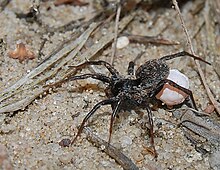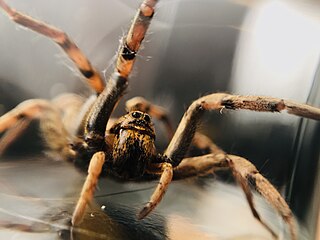
Wolf spiders are members of the family Lycosidae, from the Ancient Greek word "λύκος" meaning "wolf". They are robust and agile hunters with excellent eyesight. They live mostly in solitude and hunt alone, and do not spin webs. Some are opportunistic hunters pouncing upon prey as they find it or even chasing it over short distances. Some wait for passing prey in or near the mouth of a burrow.
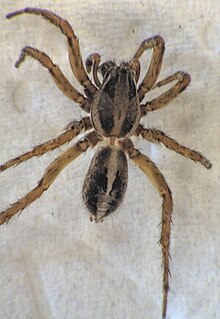
The Artoriinae are a subfamily of wolf spiders. The monophyly of the subfamily has been confirmed in a molecular phylogenetic study, although the relationships among the subfamilies was shown to be less certain.
Mongolicosa is a genus of wolf spiders containing eight species found in central Asia from the Altai Mountains east to western Buryatia and south to Xinjiang and the Gobi Desert.
Sibirocosa is a genus of wolf spiders containing seven species, all from Russia, mostly found from northeastern Siberia south to Primorsky Krai. Spiders of this genus are dark coloured and hairy with a body length of 5.25 - 7.25 mm.
Sibirocosa manchurica is a species of wolf spiders only known from Primorsky Krai, Russia.
Acantholycosa norvegica is a wolf spider species in the genus Acantholycosa with a Palearctic distribution.
Arctosa alpigena is a wolf spider species in the genus Arctosa with a holarctic distribution.
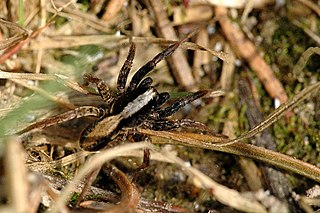
Alopecosa is a species of wolf spiders in the genus Alopecosa with a palearctic distribution.
Alopecosa mariae is a wolf spider species in the genus Alopecosa with a palearctic distribution.
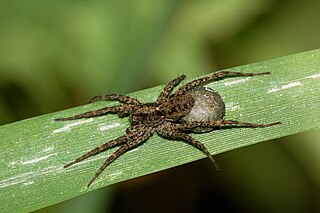
Pardosa lugubris is a wolf spider species with Palearctic distribution.

Tigrosa is a genus of spiders in the family Lycosidae, found in North America.
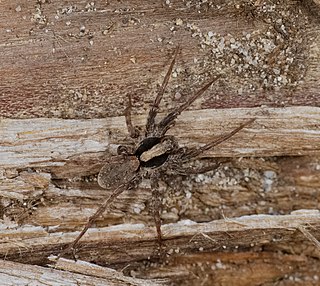
Xerolycosa nemoralis, or the burnt wolf spider, is a species of wolf spider found from western Europe eastwards to the Pacific.
Agalenocosa is a genus of spiders in the family Lycosidae. It was first described in 1944 by Mello-Leitão. As of 2017, it contains 18 species with a wide distribution.
Artoria is a genus of spiders in the family Lycosidae. It was first described in 1877 by Thorell. As of 2017, it contains 32 species.
Brevilabus is a genus of spiders in the family Lycosidae. It was first described in 1908 by Strand. As of 2017, it contains 2 species.

Geolycosa is a genus of wolf spiders first described in 1904.

Hygrolycosa is a genus of wolf spiders first described by Friedrich Dahl in 1908.
Varacosa is a genus of spiders in the family Lycosidae. It was first described in 1942 by Chamberlin & Ivie. As of 2017, it contains 6 North American species.
Zenonina is a genus of spiders in the family Lycosidae. It was first described in 1898 by Simon. As of 2017, it contains 6 species.
Melecosa is a genus of spiders in the family Lycosidae. Its lone species is found in Kazakhstan, Kyrgyzstan, and China.
